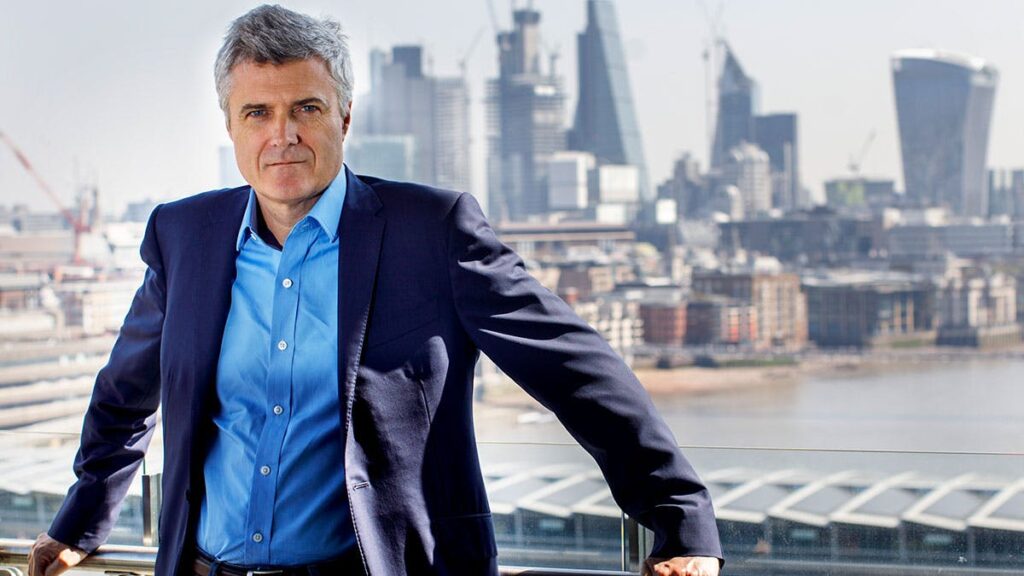 Mark Read, CEO of agency holding group WPP, will step down at the end of the year after seven years in the role.
Mark Read, CEO of agency holding group WPP, will step down at the end of the year after seven years in the role.
Read’s departure will end a career spanning more than 30 years at WPP, while the board begins the search for a successor. He was appointed CEO in 2018, succeeding Sir Martin Sorrell, who stepped down from the role after an inquiry into his workplace conduct.
Read’s exit comes as the company, which is the UK’s largest advertising group and was once the largest in the world, has struggled with a near five-year low in its share price, with its most recent earnings showing revenues declined 5% year-on-year in Q1.
“There’s never a perfect time to move on from such an organisation, but after almost seven years as CEO, I’ve decided that this is the right time for me,” Read wrote in a LinkedIn post. “The current environment may be challenging for every business but I’ve every confidence in our people and our capabilities.”Why brands are rethinking how they pay their agencies
WPP’s biggest clients include the likes of Unilever, Nestle and Google. However, notable losses over the past few years include Coca-Cola’s North America media account, Starbucks’ US creative account, Volvo and Pfizer.
Brand marketers, and by extension their agency partners, are under increasing pressure to deliver more with less. ISBA’s ‘Future of Agency Remuneration’ report found that only 48% of advertisers feel they receive value for money from their agencies, down from 65% in 2020.
Moreover, three-quarters (75%) of advertisers expect to change their agency remuneration model within the next three years, according to MediaSense and WFA.
A bumpy road
Read has faced increasing backlash over recent months for a number of his business decisions. Earlier this year, Read enforced a 4-day return to office, which faced internal criticism, with over 20,000 people signing an online petition calling for the mandate to be revoked.
The business has also faced increasing competition from tech giants, like Google and Meta, which have introduced AI tools to help brands automate the creation of ads. This month, Meta said it would start helping advertisers fully create and target campaigns using AI tools, including images, video and text.
Meanwhile, last year the group lost its spot as the biggest ad agency in the world by revenue to its French rival Publicis. At the same time, Omnicom and rival group Interpublic agreed to combine in a $13.3bn deal, compared with WPP’s market value of £5.9bn.
Read has recently pushed WPP to invest hundreds of millions of pounds in AI. Last week, the organisation launched ‘Open Intelligence’, which it claimed is the industry’s first large marketing model (LMM) to help marketers move beyond ID-based targeting through the aggregation of multiple data points.
“We’ve been working hard to put AI at the heart of WPP’s business for the last two years. The progress our teams have made has been superb and when I demo WPP Open to our clients they are always amazed by what it can do. Equipping our people with the power of AI is the best way to help them build their careers in a fast-changing world, do even better work and deliver stronger results for our clients,” Read wrote.‘No good news’: How will Omnicom’s IPG acquisition impact brands?
With the news breaking this morning, people in the industry have taken to LinkedIn to share their thoughts. Media analyst Ian Whittaker shared that Mark’s legacy will become “more appreciated in time”.
“Yes, some things could have been done better and the share price performance shows investors still need to be persuaded but I suspect his successor will be grateful for what he has done,” he wrote
Meanwhile, global category manager at L’Oreal, Ramzi Chaabane, wrote Read’s decision to step down is a sign of “something much bigger” happening across the industry.
“We’re entering the age of creative compute where value is measured in speed, precision, and impact. The good news is we are not just sourcing partners anymore, we’re designing the future of marketing,” he said.


